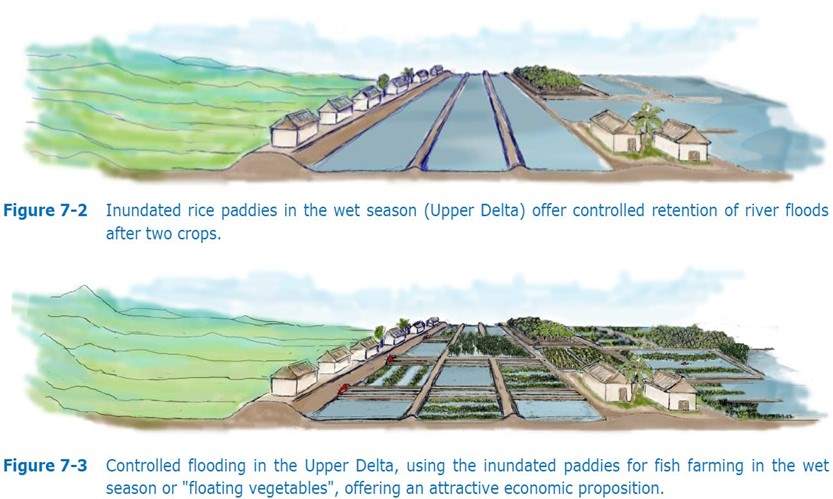Flood-based livelihood implementation
Flood-based livelihood is a type of livelihood or economic activity that relies on the natural occurrence of floods and the use of floodplains. In areas where periodic flooding is a regular phenomenon, communities may develop livelihood strategies that harness the benefits of these floods. This can include practices such as flood-based agriculture, where the fertile soil deposited by floodwaters is utilized for cultivation, or fishing activities that take advantage of increased water levels.
Implementing flood-based practices positively influences hydrological conditions, reducing flood risks by implementing smart spatial planning and controlled flooding strategies. This approach will enhance rural flood protection in the future. The flood-based livelihood system improves soil fertility and texture by capturing essential sediments and facilitating diversified crop production. This system supports modernising (traditional Khmer) agricultural practices, fostering sustainability and yielding higher-value products. It plays a crucial role in meeting the evolving food demands of a growing middle-income urban population.

Illustration of flood-based livelihood (source: Mekong Delta Plan: Long-term vision and strategy https://www.wur.nl/upload_mm/2/c/3/b5f2e669-cb48-4ed7-afb6-682f5216fe7d_mekong.pdf ).